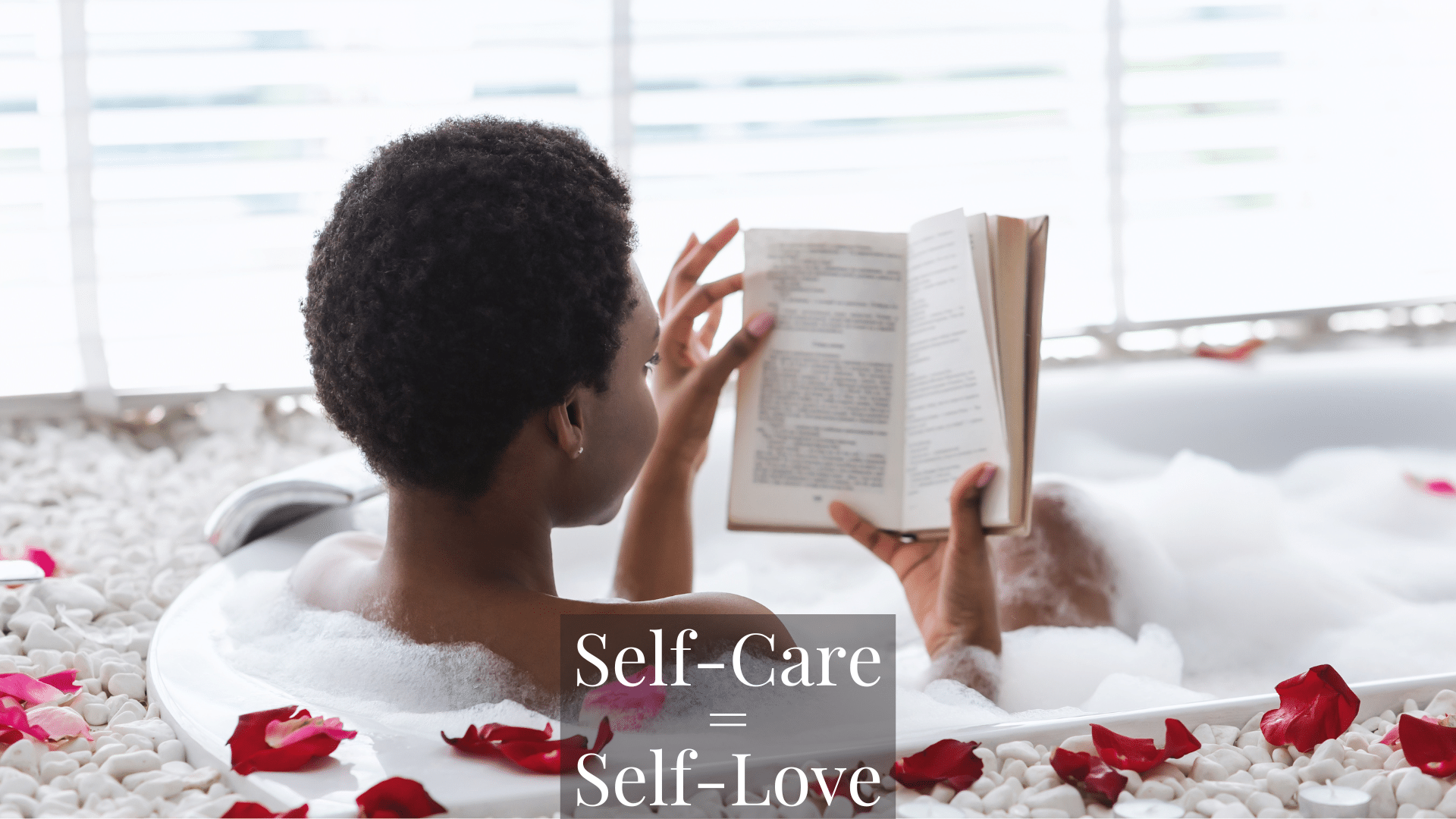Self-Care is Self-Love: Embracing Your Worth

Self-care is an act of self-love. It is a gentle reminder that your needs are important and that you deserve your own kindness and care. We all are busy and wear many hats. In the grind of daily life, it’s easy to neglect yourself. However, prioritizing self-care is essential for maintaining your mental, emotional, and physical health. Whether it’s taking a few moments to meditate, enjoying a long walk, or simply treating yourself to your favorite meal, each act of self-care is a powerful affirmation of your worth and well-being. Embracing self-care not only boosts your confidence and self-esteem but also recharges your spirit, empowering you to continue caring for others. Remember, caring for yourself isn’t selfish; it’s one of the most loving things you can do for yourself and everyone around you.

Physical Self-Care: Nourishing Your Body
Nutrition: Eating well-balanced meals that fuel the body and enhance your energy levels is the cornerstone of physical health. Incorporating a variety of nutrients in your diet can improve overall health and enable you to handle stress better.
Exercise: Regular physical activity is crucial. Whether it’s yoga, walking, or more vigorous exercises like running or cycling, find an activity that you enjoy and make it a part of your routine. Exercise not only improves physical health but also boosts mental health by releasing endorphins.
Rest: Adequate sleep is a key aspect of physical self-care. Ensuring you get at least seven to eight hours of sleep per night helps to restore the body and mind, making you more effective and less prone to stress.

Mental Self-Care: Nurturing Your Mind
Continuous Learning: Engaging in new skills or hobbies can improve your mental well-being by keeping your brain active and engaged. Whether it’s learning a new language, picking up a musical instrument, or reading a book, challenge your brain with new educational goals.
Mindfulness and Meditation: These practices can significantly decrease anxiety and stress levels by bringing about a state of awareness and calm to the mind. Regular meditation can enhance your overall emotional health, leading to greater inner peace and improved concentration. Try to incorporate a 5 minute meditation to your routine.

Emotional Self-Care: Supporting Your Emotional Health
Reflection: Taking time to reflect on your experiences and emotions can help in understanding and managing your emotional health. Journaling is a powerful tool for self-reflection and can aid in processing feelings more effectively.
Healthy Relationships: Surround yourself with supportive friends and family. Positive social interactions can reduce stress and anxiety, providing emotional security and support.
Professional Help: Sometimes, professional counseling may be needed to handle emotional issues. Therapists can provide strategies to change negative thought patterns and behaviors, helping you to cope better with life’s challenges.

Integrating Self-Care into Daily Life
Create a Routine: Make self-care a regular part of your day. Schedule time for activities that help you relax and recharge, whether it’s a morning run, a nightly skincare routine, or simply a few moments of meditation.
Set Boundaries: Learn to say no to tasks and activities that overextend your mental or emotional capacity. Setting clear boundaries can help you maintain your health and prevent burnout.
Listen to Your Body: Pay attention to the signs your body gives you. If you’re tired, rest. If you’re stressed, take a break. Listening to your body’s needs is crucial in maintaining overall health.
The Long-Term Benefits of Self-Care
Creating a self-care routine can have profound long-term effects on your overall health. It can reduce the risk of physical ailments, decrease anxiety and depression, and improve your quality of life. In addition, self-care fosters a greater sense of self-love and appreciation, which can lead to stronger and enduring relationships with others.
By integrating self-care practices into your daily life, you affirm your worth and take responsibility for your happiness and well-being. This commitment to yourself not only enhances your quality of life but also sets a foundation for lasting personal growth and success.

F.A.Q.’s
What is the best quote for self-love?
One of my favorite self love quotes is “You alone are enough. You have nothing to prove to anybody.”, by Maya Angelou.
Why is self love so hard?
Self-love can be hard for some people because of constant negativity. Negative dialogue received from others, as well as negative internal dialogue can tear down your self esteem. It is important to take to evaluate the people around you as well as the things you listen to. When you replace the negativity with more encouraging and compassionate words, your self worth with improve.
What does poor self-love look like?
Poor self-love often manifests as a lack of self-esteem and neglecting personal needs. Individuals might frequently criticize themselves harshly, struggle to accept compliments, and prioritize others excessively, neglecting their own well-being. Such behavior can lead to ignoring personal boundaries and tolerating mistreatment, reflecting a belief of not being worthy of care or respect.
How does self care lead to self-love?
Self-care is self-love as it involves actions that prioritize one’s well-being, reinforcing the belief that one deserves health and happiness. By regularly engaging in self-care, individuals nurture their mental, emotional, and physical health, which builds self-esteem and self-worth. Both are essential components of self-love. This positive cycle encourages a loving and compassionate relationship with oneself.
What happens when you start loving yourself?
When you start loving yourself, you embrace a transformative journey of self-acceptance and growth. This self-love fosters enhanced mental well-being, boosts confidence, and nurtures resilience against life’s challenges. It leads to healthier relationships as you value yourself more and establish boundaries. Ultimately, loving yourself sets a foundation for a fulfilled and contented life, enriching your interaction with the world around you.












